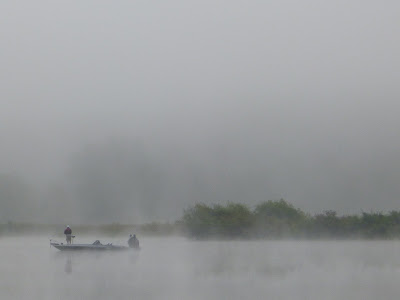 |
| Old tree ... irregular |
I have been interested in the concept of wabi-sabi since a friend introduced me to it some twenty years ago. Basically, it is a Japanese aesthetic that embraces the modest, the imperfect, the irregular, the evolving/devolving. I like it because it recognizes what I might call an un-Madison Avenue, un-Hollywood beauty. Something with a more spiritual approach, recognizing a humanity, even, within the subject, whether that is an old gnarled tree or a misfired clay pot that no one pays all that much attention to.
One thing I've decided is that wabi-sabi is pretty much the opposite of what we in the West think of as beauty, ours being based on the Greek ideal of perfection. The young beautiful girl, the perfect piece of hand-blown glass. Not the woman
d'un certain âge ... or something with a highly polished sheen from eons of use.
In the advertising mode, we are faced with images that are meant to knock our socks off, to make one's jaw drop. But how often can we keep that up? So we disconnect. We drop out. We decide we want something calmer. No drama queens, please. Not even those who pretend not to be. Here's the weather, they say. Look at (and celebrate the anniversary of) the disasters that have hit these particular places. Here's the news. See what awful things are being done here and here and here. Here's a program where a couple is looking for a house. Watch how she wants something in the city and he something in the country. Oh, conflict, conflict. Who will give way?
And then our national aesthetic focuses on the bright, the glitzy, the honored, the one that calls out, "I am best" or even, "You are best." So, to look at the very opposite (and something that does not speak of glorification) can seem downright subversive. But what a treasure one can find in quietly invisible places, in places that
are, that do not shout out to be recognized.
Wabi-sabi, then, is the beauty--even the spiritual path--found in that which is humble, incomplete, rustic, unsophisticated, overlooked, simple. In a farmers market, it might well be the basket of "Seconds." The tomatoes that didn't make the expensive cut.
 |
| Ferns ... devolving |
What I'm wondering is: as we (as a nation, as people) mature, as we are possibly faced with more austerity in our lives, will we find ourselves tapping more and more into something related to wabi-sabi? We've so long learned that beauty is perfection that we automatically negate this whole different approach. Where is the excitement in the modest? we ask But we can turn that around to ask, what is there within the modest, the imperfect that we never noticed before? I do believe we're ready for this more internal view, this totally different outlook than the one that's been drummed into us.
 |
| Apple orchard farm stand ... rustic |
The best book I've found on the subject is Leonard Koren's
Wabi-Sabi for Artists, Designers, Poets & Philosophers (Stone Bridge Press)
. In it, he shows photos of a leaf decomposing on the ground, the intersection of two mud-straw walls in a typical Japanese room, a trail of rust made by a nail in a piece of wood. According to him, one of wabi-sabi's metaphysical tenets is that all is evolving or devolving from or to nothingness. "And nothingness itself--instead of being empty space, as in the West--is alive with possibility. In metaphysical terms, wabi-sabi suggests that the universe is in constant motion toward or away from potential." (p. 45)
 |
| Shadows on a wall ... impermanent |
 |
| Aging leaves on top of a stone wall ... modest, rough |































